Welcome to Year 6
Meet the teachers
Year 6 (ID 1126)
-
Mr Batchelor6H Teacher
Mr Batchelor
-
Mrs Randell-Brown6T Teacher
Mrs Randell-Brown
Things to know about Year 6
Firstly, no guide to Year 6 would be complete without some mention of the SATS — the assessment tasks that all Year 6 pupils sit in May of each year. The results of these will determine whether your child has met the ‘expected’ level in English and maths.
In both maths and English, there are a wide range of expectations for the children, which Year 6 teachers are constantly assessing your children against (without them even knowing!).
For maths this includes things like simple algebra, missing angles in a range of shapes, and pie charts using percentages. In English the children are now expected to understand how to use a full range of punctuation, to write with a wide variety of sentence structures, use powerful vocabulary and have generally accurate spelling of all words. There are many more ‘expected’ aspects to both English and maths but these are just a few!
There is no doubt that that the testing will become a focus during the year and a great deal of work will be carried out to prepare for this time. However, your child’s teacher will often be helping your child prepare for the tests without them even realising it. At Holy Trinity we aim to keep the stress levels down, with plenty of fun AND valuable learning.
The wider curriculum
There are many other valuable subjects that are not assessed in the tests which many children excel in – and these are equally as important. In Year 6 the children always love our history topics, especially World War 2. It makes for some amazing cross-curricular learning involving art, drama, DT, music, geography and fabulous English writing activities. Next year, we have some new topics in year 6 which include a unit of study on The Maya; a region of South America and on what our world may be like in the future.
In science and the topic of evolution and inheritance, your child will get to look at dinosaurs, fossils, genetics, Darwin and so much more. Other science topics include the circulatory system, animal adaption, light and electricity. Where possible your child will carry out a variety of scientific investigations during all of these topics, building on the skills they have already acquired. Most children love practical lessons and the opportunity to use scientific equipment.
How can I help my child in Year 6?
Obviously, keep doing all of the usual things that has helped them to be successful so far in HTPS. Continue to hear them read regularly (even if they are already very capable readers), practise times tables, help them with homework, talk to them about their day and encourage them to read by visiting the local library, bookshops or using eBooks online. Make sure they are in on time everyday and that there attendance is high.
Prepare for SATs
You will probably want to support your child in the lead up to the SATS. Working with your child, when needed, will help you see where they need the most support. It is often a surprise to some parents just how much the children are expected to know and just how clever they have become!
Be sure to speak to your child’s teacher at various during the year when you need to. They will be keen to help with any areas of concern you might have. We will also provide parents with a SATs information presentation in the Spring term.
Homework
Read, read, read!
By far the most important thing that a child can do at home is read. Children are expected to read each day at home (minimum 5 times a week) and this should be recorded in their reading records. Children are never too old or too capable to be heard read or to be questioned on a book that they are reading. The discussion that can come from reading with your child and questioning them can encourage a real love for reading that really helps them in all areas of the curriculum as well as supporting them leading up to their reading SAT.
Children will be given spellings to learn each week which will follow the spelling patterns taught in their spelling groups. They will be tested on these the following week. Children will also be given a maths activity to complete each week. This work will be based on the learning the children are completing in class that week and is normally set online.
Where do I drop off and pick up?
In the morning, children are encouraged to come up to class on their own to build independence. Children must come in through the main staircase and no parents are allowed in the main school building. If you need to get a message to or make an appointment to see the class teacher, please see the office who will be happy to help or contact the class teacher via Class Dojo.
At the end of the day, the Year 6 children come down the main staircase with their class teacher.
As the children get older, many of our children walk home from school without an adult. The safety of our children is of the utmost importance, so if you wish for this to happen then please ensure that you have given permission for them to do so by signing the relevant form in the office, otherwise we will be unable to release them at the end of the day.
SATS information & revision resources
TermTalk & Knowledge Organisers

